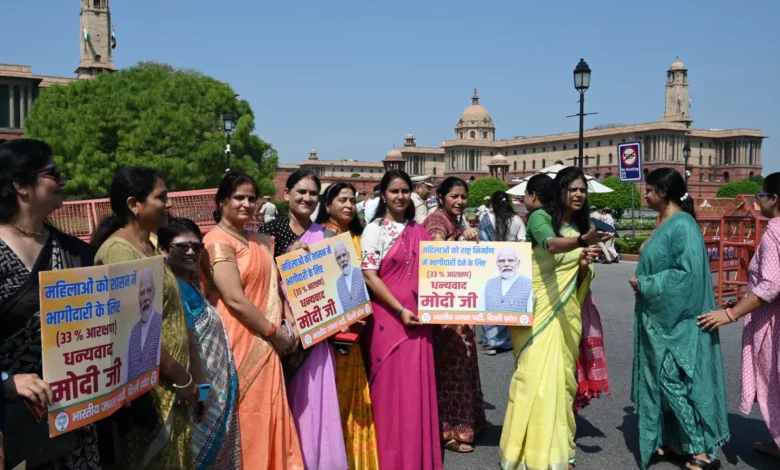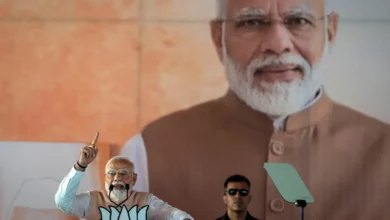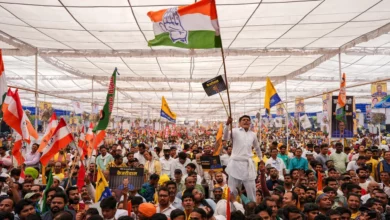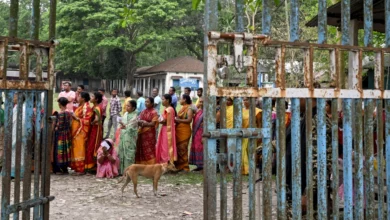
The bill received cross-party support and was celebrated by politicians across India’s often fractious political spectrum but some expressed reservations that it could still take years for the quota to be implemented.
A total of 214 lawmakers from the upper house voted in favor of the Women’s Reservation Bill, which was introduced by prime minister Narendra Modi’s government in a special parliamentary session on Tuesday. It was approved by the lower house on Wednesday.
“A historic moment in our country’s democratic journey!” Modi wrote on Twitter after its approval. “With the passing of this bill, the representation of women power will be strengthened and a new era of their empowerment will begin.”
Six attempts to pass the bill, first introduced in 1996, have failed, at times due to strong disapproval from the country’s overwhelmingly male lawmakers.
In India, the world’s largest democracy of 1.4 billion people, women make up nearly half of the country’s 950 million registered voters but only 15% of lawmakers in parliament and 10% in state assemblies.
Despite being voted through, the move will not apply to next year’s general election.
The implementation of the quota could take years as it depends on the redrawing of electoral constituencies, which will only happen after the completion of India’s once-in-a-decade census.
That huge census project was meant to take place in 2021, but was delayed due to the coronavirus pandemic, and has been stalled ever since.
Some members of India’s opposition expressed disappointment that the bill won’t come into effect sooner.
Sonia Gandhi, a leader of the Indian National Congress, said women have been waiting for 13 years for the bill to go through.
“Now they have been asked to wait longer,” she told lawmakers in parliament. “How many years more?”
Rajani Patil, another Congress lawmaker, said that while the party was “very happy” at its passage, their demand is that the bill should be “implemented immediately” for the general elections.
She added: “It should include OBC reservations as well,” referring to India’s caste system, a 2,000 year old social hierarchy imposed on people by birth. Though abolished in 1950, it still exists in many aspects of life.
Nonetheless, the bill’s passage in parliament will be seen as a further boost to Modi and his Bharatiya Janata Party (BJP) ahead of national elections next year.
While India has made progress on women’s issues in recent years, it remains a deeply patriarchal country.
It has, since its independence in 1947, had one female prime minister. India Gandhi served as the country’s leader twice before her assassination in 1984.
India’s current President, Droupadi Murmu, who was appointed to the position last year became only the second woman to take the seat.
Across the world, the overall share of lower house parliamentary seats occupied by women is about 26 percent according to UN Women’s data, up from 11 per cent in 1995.
Only six nations have currently achieved 50 per cent or more women in parliament in single or lower houses. Rwanda leads with 61 per cent, followed by Cuba (53 per cent), Nicaragua (52 per cent), Mexico (50 per cent), New Zealand (50 per cent), and the United Arab Emirates (50 per cent).
A further 23 countries have reached or surpassed 40 per cent, including 13 countries in Europe, six in Africa, three in Latin America and the Caribbean, and one in Asia – Timor Leste.
However Taiwan, which is not counted in the UN data, has the second highest representation of women in its legislature in Asia after the UAE at 43 percent.



